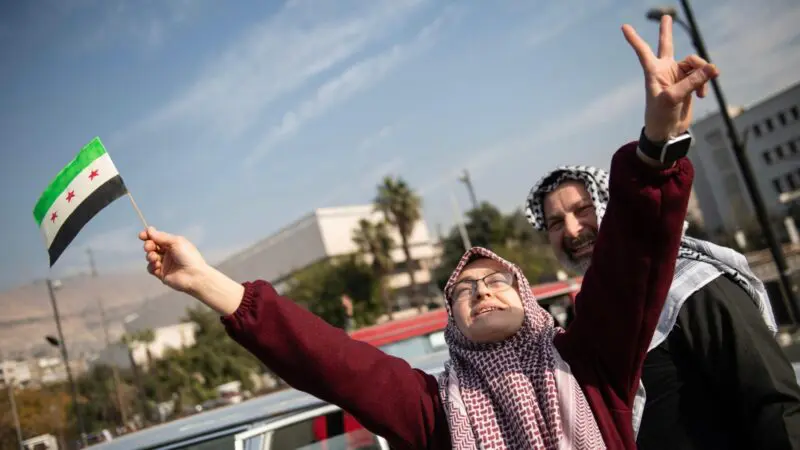Syria’s political transition raises questions about regional realignment
Syria's revolution: A new chapter for Palestinian resistance?

The change in Syria’s leadership after 24 years of Assad rule has created significant regional implications, particularly regarding Syrian-Israeli relations and Palestinian interests in the region.
ANALYSIS | By Libya Express Analysis Team
Thousands gathered in Damascus yesterday morning as opposition forces took control of the capital. The transition began at approximately 05.00 local time when opposition fighters entered Damascus, taking control of government institutions after regime forces withdrew, according to multiple witness accounts.
Russian officials confirmed that President Bashar Al-Assad has been granted asylum in Moscow on what they termed “humanitarian grounds”. The Russian statement indicated that Al-Assad had met with opposition representatives before departing Syria, though no details about these meetings have been disclosed.
Syrian Prime Minister Mohammad Ghazi Al-Jalali released a video statement from his residence, expressing willingness to support administrative continuity and facilitate transition to new leadership. Ahmad Al-Sharaa, known as Abu Mohammad Al-Julani, who leads the opposition forces, issued directives for the protection of public institutions, with these remaining under Al-Jalali’s temporary supervision during the transition period.
The opposition’s entry into Damascus led to the opening of several detention facilities, including Sednaya Prison. Among those released were Palestinian detainees, including members of Hamas and its military wing Al-Qassam Brigades. Security footage indicates additional detainees remain in sections of the facility that are currently inaccessible.
Syria’s territorial control is now divided amongst several groups. The opposition group Hay’at Tahrir Al-Sham (HTS) controls significant portions of western Syria, including areas near the Golan Heights. The US-backed Syrian Democratic Forces (SDF) maintains control of north-eastern regions, while the Democratic Union Party (PYD) holds certain territories. Both Russian and US military forces maintain their respective positions in the country.
The Israeli government announced its withdrawal from the 1974 disengagement agreement with Syria, citing the agreement’s “collapse” following the regime change. Israeli military forces have moved to establish control over buffer zones in the Golan Heights, Mount Hermon, and parts of Al-Quneitra Province, according to official Israeli statements.
In Idlib, where HTS has maintained control for several years, the administration has established local governance structures. Independent observers report varying assessments of this governance model’s effectiveness and implications.
The transition raises questions about Syria’s relationship with regional actors, including Iran and Hezbollah, which maintained close ties with the previous government. Diplomatic sources indicate that multiple international stakeholders are monitoring developments, particularly regarding potential shifts in regional alliances and security arrangements.
Current priorities for Syria’s transitional leadership include maintaining basic services, ensuring institutional continuity, and addressing immediate governance challenges. International organisations report that the situation remains fluid, with various diplomatic initiatives underway to support stability during the transition period.
The United States, European Union, and regional powers have indicated they are closely monitoring developments, particularly regarding potential changes in Syria’s international alignments and security policies. Diplomatic sources suggest that multilateral discussions about Syria’s political future are expected to begin in the coming weeks.
How to submit an Op-Ed: Libyan Express accepts opinion articles on a wide range of topics. Submissions may be sent to oped@libyanexpress.com. Please include ‘Op-Ed’ in the subject line.
- Iran imports $7.6 billion in gold through Khomeini Airport - April 15, 2025
- Trump claims Ukraine conflict is “Biden’s war,” vows to seek resolution - April 15, 2025
- Recent Nile flooding in Egypt renews concerns over Ethiopian dam’s impact - April 15, 2025


